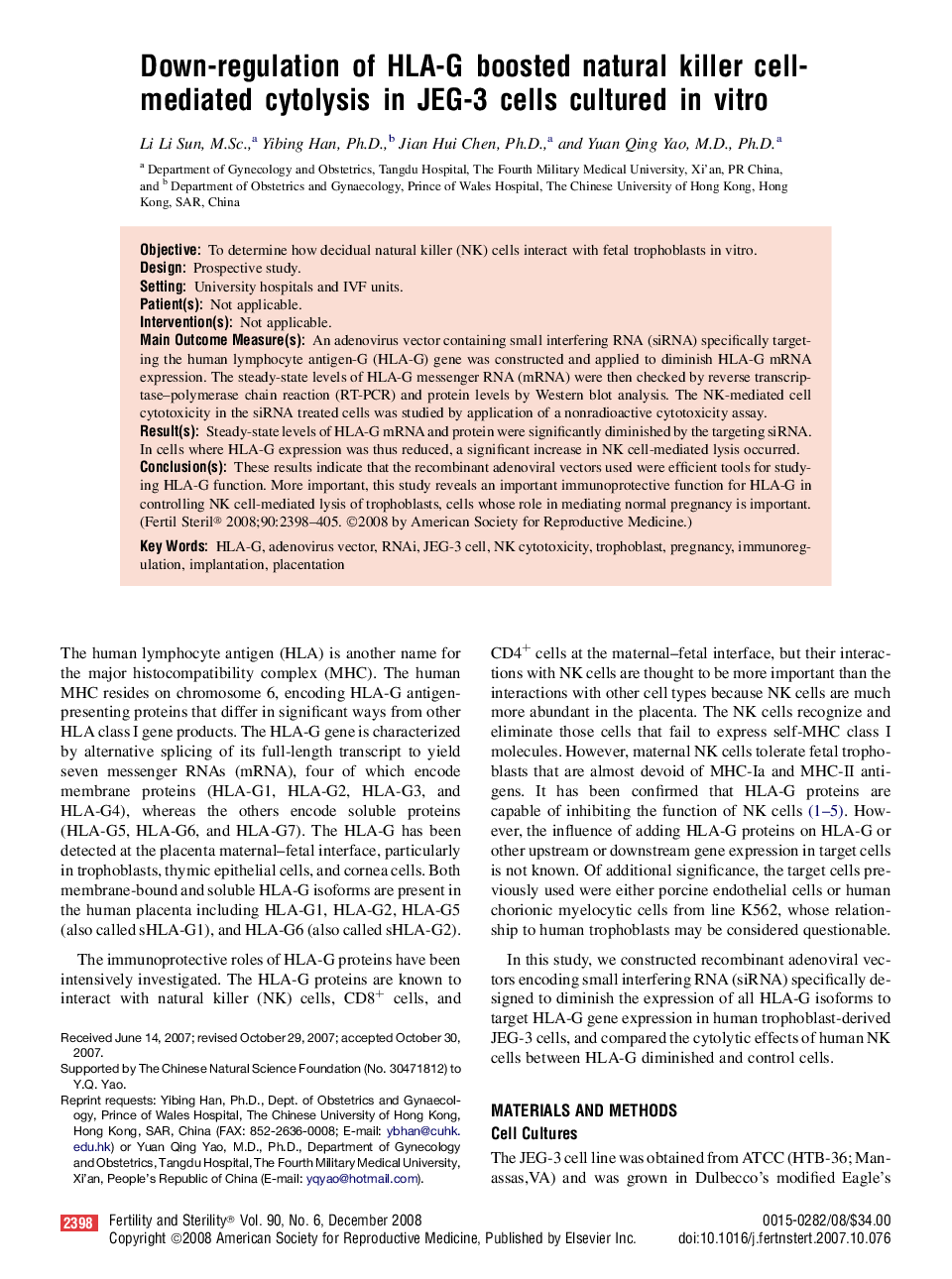| Article ID | Journal | Published Year | Pages | File Type |
|---|---|---|---|---|
| 3937213 | Fertility and Sterility | 2008 | 8 Pages |
ObjectiveTo determine how decidual natural killer (NK) cells interact with fetal trophoblasts in vitro.DesignProspective study.SettingUniversity hospitals and IVF units.Patient(s)Not applicable.Intervention(s)Not applicable.Main Outcome Measure(s)An adenovirus vector containing small interfering RNA (siRNA) specifically targeting the human lymphocyte antigen-G (HLA-G) gene was constructed and applied to diminish HLA-G mRNA expression. The steady-state levels of HLA-G messenger RNA (mRNA) were then checked by reverse transcriptase–polymerase chain reaction (RT-PCR) and protein levels by Western blot analysis. The NK-mediated cell cytotoxicity in the siRNA treated cells was studied by application of a nonradioactive cytotoxicity assay.Result(s)Steady-state levels of HLA-G mRNA and protein were significantly diminished by the targeting siRNA. In cells where HLA-G expression was thus reduced, a significant increase in NK cell-mediated lysis occurred.Conclusion(s)These results indicate that the recombinant adenoviral vectors used were efficient tools for studying HLA-G function. More important, this study reveals an important immunoprotective function for HLA-G in controlling NK cell-mediated lysis of trophoblasts, cells whose role in mediating normal pregnancy is important.
